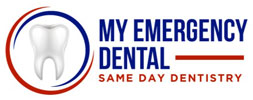What advantages does adding dental coverage to my insurance compensation package provide?
Better Oral Health
Adding dental coverage to your insurance compensation package can provide several advantages. Here are some benefits that you might want to consider:
1. Better oral health: With dental coverage, you are more likely to visit the dentist on a regular basis, which can help prevent dental problems and promote good oral health.
2. Cost savings: Dental procedures can be costly if you do not have insurance, but with dental coverage, you will pay less out of pocket for routine checkups and preventative care.
3. Access to a wider range of treatment options: With dental coverage, you may have access to a wider range of treatment options, including cosmetic dentistry procedures that may not be covered by other insurance plans.
4. Improved overall health: Good oral health is linked to overall health, so having access to regular dental appointments and preventative care can help improve your overall well-being.
5. Peace of mind: Knowing that you have dental coverage as part of your insurance plan can provide peace of mind in case unexpected oral health issues arise.
It’s important to note that different insurance plans may offer different types and levels of coverage for dental procedures and treatments. Be sure to carefully review your plan’s details before choosing one that works best for you.
Early Identification and Intervention of Dental Issues
When considering the inclusion of dental coverage in your insurance compensation package, it’s important to recognize the numerous advantages it offers. Maintaining good dental health is essential for our overall well-being, as it boosts our confidence, comfort, and ability to fully enjoy life. By adding dental coverage to your insurance, you gain access to a wide range of preventive and restorative dental services, such as regular check-ups, cleanings, and treatments.
This coverage not only supports the upkeep of proper oral hygiene but also enables early identification and intervention for dental issues, potentially avoiding more extensive and costly procedures in the future.
Moreover, dental coverage provides a sense of financial security by offsetting expenses related to dental care, including fillings, crowns, and even orthodontic treatments. Prioritizing comprehensive coverage for your dental health is an investment in your long-term well-being, ensuring a radiant smile and minimizing the risk of dental discomfort or complications. Embracing dental coverage within your insurance compensation package reflects a proactive approach towards a brighter and healthier future.
Nidhi Agarwal
Reduce Costs of Service
A percentage of the cost of preventive care, crowns, fillings, root canals, and oral surgery, including tooth extraction, is typically covered by dental insurance. They may also cover prosthodontics, which includes dentures and bridges, orthodontics, and periodontics (the care of the tissues that support and encircle the tooth). Two preventive visits are typically covered per year. Costs for everything from urgent extractions of teeth to dental cosmetic treatments like tooth whitening can be reduced with dental insurance plans.
This is a crowdsourced article. Contributors' statements do not necessarily reflect the opinion of this website, other people, businesses, or other contributors.


